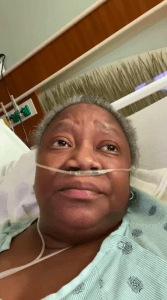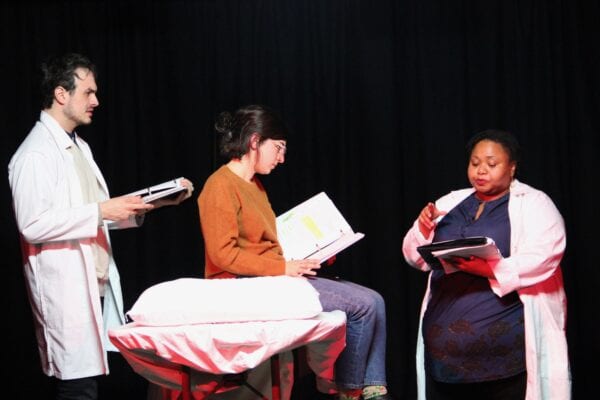
A few days ago I attended a virtual forum held by the Physicians for a National Health Program. The forum discussed medical racism and gender discrimination, a theme that we dive into in Tanya’s LIT CLIT (TLC), a new play with music and dance that I am developing with playwright, Emma Goldman-Sherman, and Experimental Bitch Presents. This forum discussed the death of Dr. Susan Moore, a Black female physician, who, before passing away from complications due to COVID-19, recorded this video documenting the negligent care she received in the hospital.
PNHP spoke fervently about the pervasive severity of racism in medicine. “We must confront institutional racism in health care by fighting not only for equitable and universal coverage, but for substantive institutional accountability and the eradication of racism in all forms.”
I was moved by the coming together of physicians, predominantly physicians of color, to address this important issue. Most of the time, at least in my experience, I hear patients complaining or advocating for themselves. But this forum was lead by our doctors, many of whom spoke about their own experiences as patients themselves.
TLC was conceived out of our mutual struggles with chronic pain and autoimmune disorders. Approximately 80% of all patients diagnosed with chronic autoimmune diseases are women. Of the 23.5 million Americans suffering, that’s 18.8 million women, who spend an average of 4.5 years searching for a diagnosis. Research for autoimmune disorders is underfunded and the lived experiences of women suffering is often invisible.
As artist/activist Alok Vaid-Menon said in a recent post on Facebook: ‘“From” makes the pain external to me. “With” makes it feel like we are in this together. Are we? Is this, me? Pain unsettles grammar. It can’t be spoken or written, just felt. Where does the body begin and where does it end? I don’t know, but I hurt.”
I believe that art, theater in particular, has the power to embody experiences we cannot put into words; we can live the situations of our bodies out on stage and actually change the narrative. My hope is that TLC’s innovative use of meta-theatrical comedy, multi-disciplinary dance, and live sound accompaniment will make visceral the devastation of discovering pain again and again, and will shake us from our complacency to imagine a world in which women, especially women of color, have the care they desperately need and deserve.





